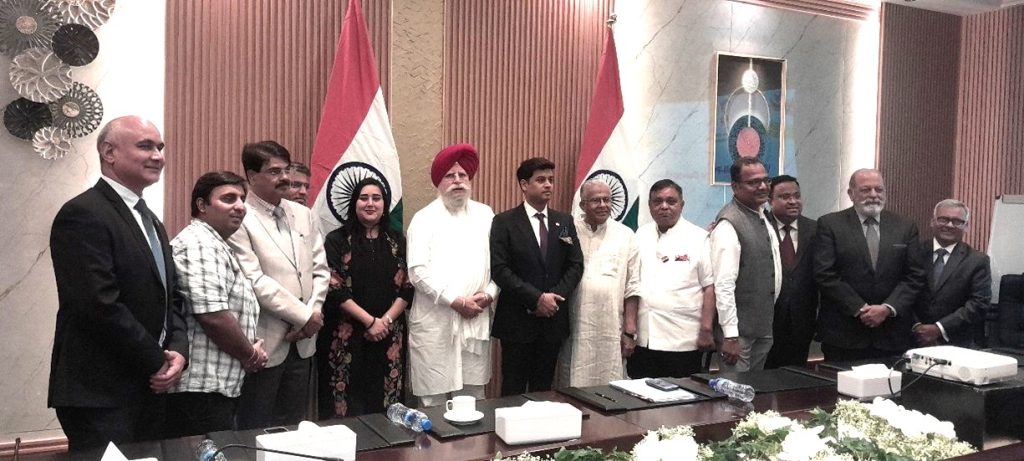India is embarking on a diplomatic offensive to garner international support, particularly from African nations, in its fight against terrorism following a deadly cross-border attack attributed to a Pakistan-based terrorist group. This diplomatic push underscores India’s growing concern over Pakistan’s alleged role in harboring and supporting terrorist organizations, a concern amplified by the recent attack that resulted in the loss of 26 lives within Indian territory. The attack has significantly escalated tensions between the two nuclear-armed neighbors, sparking military responses and retaliations, and raising fears of a wider regional conflict.
At the heart of India’s diplomatic strategy is the mobilization of an All-Party Delegation, led by Member of Parliament Dr. Shrikant Eknath Shinde, to engage with key African nations. The delegation’s visit to Liberia, following trips to Sierra Leone, the Democratic Republic of Congo, and the UAE, signifies India’s recognition of Africa’s growing influence on the global stage and its strategic importance in building a united front against terrorism. The delegation’s message emphasizes that the attack on India is not an isolated incident but a threat to global peace and security, urging African nations to stand in solidarity with India and speak out against terrorism.
The delegation’s appeal to Liberia carries particular weight given the country’s bid for a non-permanent seat on the UN Security Council. India is urging Liberia to leverage its potential position on the council to amplify the global condemnation of terrorism and to hold Pakistan accountable for its alleged support of terrorist groups. This call to action underscores India’s belief that a unified global response is crucial to effectively combat terrorism and prevent future attacks.
The April attack has triggered a cycle of violence between India and Pakistan, further deepening the long-standing animosity between the two countries. India’s military response, targeting nine terrorist bases within Pakistan, was met with retaliatory attacks on Indian border towns, resulting in civilian casualties. The escalation of hostilities has prompted international concern and calls for de-escalation, with even US President Donald Trump offering to mediate between the two nations. This volatile situation highlights the urgent need for diplomatic solutions and international cooperation to prevent the conflict from spiraling out of control.
Pakistan, on the other hand, is actively engaging in its own diplomatic efforts to counter India’s narrative and present its perspective on the escalating tensions. The deployment of two high-level delegations, one to the United Nations and another to unspecified locations, demonstrates Pakistan’s intent to engage in international diplomacy and defend its position against accusations of supporting terrorism. The delegation to the UN is expected to meet with Secretary-General António Guterres and other key figures, aiming to present Pakistan’s commitment to peace and diplomacy while countering India’s claims.
The competing narratives and diplomatic efforts of India and Pakistan underscore the complexity of the situation and the challenges in achieving a peaceful resolution. While India seeks to isolate Pakistan diplomatically and highlight its alleged support for terrorism, Pakistan is striving to project an image of peace and responsibility, countering India’s accusations. The international community faces the difficult task of navigating these conflicting narratives and facilitating dialogue to de-escalate tensions and prevent further violence. The involvement of influential figures like President Trump highlights the global concern over the potential ramifications of this ongoing conflict and the need for a concerted international effort to promote peace and stability in the region.














